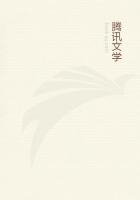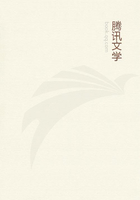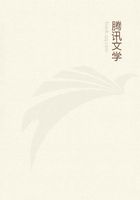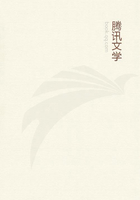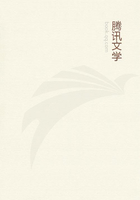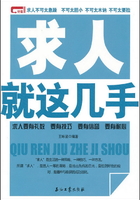--[A second memoir prepared by him to the same effect was intended for the Minister of War, but Father Berton wisely advised silence to the young cadet (Iung, tome i. p. 122). Although believing in the necessity of show and of magnificence in public life, Napoleon remained true to these principles. While lavishing wealth on his ministers and marshals, "In your private life," said be, "be economical and even parsimonious; in public be magnificent" (Meneval, tome i. p. 146).]--He showed that the plan of education was really pernicious, and far from being calculated to fulfil the object which every wise government must have in view. The result of the system, he said, was to inspire the pupils, who were all the sons of poor gentlemen, with a love of ostentation, or rather, with sentiments of vanity and self-sufficiency; so that, instead of returning happy to the bosom of their families, they were likely to be ashamed of their parents, and to despise their humble homes. Instead of the numerous attendants by whom they were surrounded, their dinners of two courses, and their horses and grooms, he suggested that they should perform little necessary services for themselves, such as brushing their clothes, and cleaning their boots and shoes; that they should eat the coarse bread made for soldiers, etc. Temperance and activity, he added, would render them robust, enable them to bear the severity of different seasons and climates, to brave the fatigues of war, and to inspire the respect and obedience of the soldiers under their command. Thus reasoned Napoleon at the age of sixteen, and time showed that he never deviated from these principles. The establishment of the military school at Fontainebleau is a decided proof of this.
As Napoleon was an active observer of everything passing around him, and pronounced his opinion openly and decidedly, he did not remain long at the Military School of Paris. His superiors, who were anxious to get rid of him, accelerated the period of his examination, and he obtained the first vacant sub-lieutenancy in a regiment of artillery.
I left Brienne in 1787; and as I could not enter the artillery, I proceeded in the following year to Vienna, with a letter of recommendation to M. de Montmorin, soliciting employment in the French Embassy at the Court of Austria.
I remained two months at Vienna, where I had the honour of twice seeing the Emperor Joseph. The impression made upon me by his kind reception, his dignified and elegant manners, and graceful conversation, will never be obliterated from my recollection. After M. de Noailles had initiated me in the first steps of diplomacy, he advised me to go to one of the German universities to study the law of nations and foreign languages.
I accordingly repaired to Leipsic, about the time when the French Revolution broke out.
I spent some time at Leipsic, where I applied myself to the study of the law of nations, and the German and English languages. I afterwards travelled through Prussia and Poland, and passed a part of the winter of 1791 and 1792 at Warsaw, where I was most graciously received by Princess Tyszicwiez, niece of Stanislaus Augustus, the last King of Poland, and the sister of Prince Poniatowski. The Princess was very well informed, and was a great admirer of French literature: At her invitation I passed several evenings in company with the King in a circle small enough to approach to something like intimacy. I remember that his Majesty frequently asked me to read the Moniteur; the speeches to which he listened with the greatest pleasure were those of the Girondists. The Princess Tyszicwiez wished to print at Warsaw, at her own expense, a translation I had executed of Kotzebue's 'Menschenhass and Reue, to which I gave the title of 'L'Inconnu'."
--[A play known on the English stage as The Stranger.]--I arrived at Vienna on the 26th of March 1792, when I was informed of the serious illness of the Emperor, Leopold II, who died on the following day. In private companies, and at public places, I heard vague suspicions expressed of his having been poisoned; but the public, who were admitted to the palace to see the body lie in state, were soon convinced of the falsehood of these reports. I went twice to see the mournful spectacle, and I never heard a word which was calculated to confirm the odious suspicion, though the spacious hall in which the remains of the Emperor were exposed was constantly thronged with people.
In the month of April 1792 I returned to Paris, where I again met Bonaparte, --[Bonaparte is said, on very doubtful authority, to have spent five or six weeks in London in 1791 or 1792, and to have "lodged in a house in George Street, Strand. His chief occupation appeared to be taking pedestrian exercise in the streets of London--hence his marvellous knowledge of the great metropolis which used to astonish any Englishmen of distinction who were not aware of this visit. He occasionally took his cup of chocolate at the 'Northumberland,' occupying himself in reading, and preserving a provoking taciturnity to the gentlemen in the room; though his manner was stern, his deportment was that of a gentleman." The story of his visit is probably as apocryphal as that of his offering his services to the English Government when the English forces wore blockading the coast of Corsica,]-- and our college intimacy was fully renewed. I was not very well off, and adversity was hanging heavily on him; his resources frequently failed him. We passed our time like two young fellows of twenty-three who have little money and less occupation. Bonaparte was always poorer than I.
Every day we conceived some new project or other. We were on the look- out for some profitable speculation. At one time he wanted me to join him in renting several houses, then building in the Rue Montholon, to underlet them afterwards. We found the demands of the landlords extravagant--everything failed.

